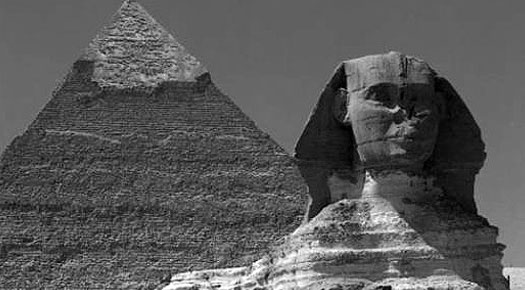
A Muslim preacher from Kuwait recently called for the demolition of the pyramids and sphinx in Egypt, stating it is time for Islamists to eradicate the history and heritage of the pharaohs. Ibrahim Al Kandari’s appeal came amidst Islamic State ramping up its attacks against historic sites across the region. Even though Egypt’s ancient structures are not religious in nature, they are historical and cultural sites that Islamist radicals believe should be destroyed so as to discourage the worship of images.
“The fact that early Muslims who were among Prophet Mohammed’s followers did not destroy the pharaohs’ monuments upon entering the Egyptian soil, does not mean that we shouldn’t do it now,” Kandari said.
A similar call for the demolition of Egypt’s heritage came from Abu Bakr al Baghdadi, self-proclaimed caliph of Islamic State, who believes the demolition of such structures is the religious duty of Muslims alone. In his extremist interpretation of his religion, no material object should be worshipped or idolized and thus should be destroyed.
These appeals have been surfacing amid increasing concerns over the sanctity of such architectural monuments of historical significance across the region, where militants continue to demolish ancient artifacts and settlements. Just last week, Islamic State demolished and looted the ancient cities of Dur Sharrukin in northern Iraq, Hatra and Nimrud near Mosul. These damages were compared by archaeologists to the Taliban’s destruction of Bamiyan Buddhas in Afghanistan in 2001.
In 2012 too, another cleric issued a fatwa, demanding Egypt gets rid of all traces of the pyramids and sphinx. According to the cleric, who is also affiliated with the radical Salafi movement, the structures should be done away with since Prophet Mohammed destroyed idols in Mecca. He went on to criticize Egypt’s tourism ministry, comparing it with prostitution and debauchery. The fatwa was obviously denounced by administrative heads as well as scholars in Egypt, who said the structures were part of the country’s culture and not its religious heritage.
Attacks on the pyramids and sphinx date back centuries. While some legends suggest the Sphinx’s missing nose was a result of Napoleon’s attack, historians believe it was in fact destroyed by Mohammad Saim al Dhar during the 14th century, after he discovered that a group of peasants worshipped the structure.
Photo Credits: Weird Sciences
